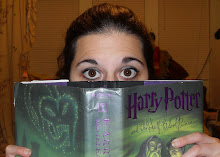This novel is not on the list, but it deserves to be, without a doubt.
Never Let Me Go is a quiet, contemplative novel by Kazuo Ishiguro. It is not fast-paced nor plot-driven, but it has a way of creeping under your skin and staying with you.
Ishiguro was born in Nagasaki, Japan in 1954 and moved to Britain at a young age. Even though he lived in England, the experience of starting his life in a city that had been affected by an atomic bomb seems to have carried over into his writing. I saw Mr. Ishiguro speak several weeks ago while he was promoting his new book, The Buried Giant. During that talk, he mentioned that up until the age of eight, he believed that every city had had a bomb dropped on them. From an early age, he was affected by this before-and-after mentality and the idea of mortality it brought with it.
I can’t state an informed opinion about his other novels, but this certainly seems to have seeped into the themes of Never Let Me Go. The novel is set in an alternate Britain and is told from the point of view of Kathy H. Kathy talks to the reader as if they are an old friend and opens up about her childhood, adolescence, and the process of maturing into adulthood. Kathy is the one who sets the insightful and contemplative tone for the novel. [LIGHT SPOILERS AHEAD] But this novel is not just a bildungsroman. Kathy, and all of the other students she grows up with at Hailsham Home, are clones that were created for the purpose of harvesting their organs for donations. I call this a light spoiler because it is not an epic plot twist. Just like it is part of the clone’s life, it is woven seamlessly into the narrative.
The entire novel is told in a deeply personal matter from Kathy’s perspective. From the beginning, Kathy is established as quiet and observant. This lends credibility to her as a reliable narrator. Throughout the novel, there are many times when Kathy can magically tell what someone else is thinking just by their expression or a feeling. But we trust those moments and we trust Kathy as our guide through this strange, yet familiar, reality.
While the novel is truly a journey, it is in the final few chapters that we get some outside perspective on this world. Kathy and another ex-student, Tommy, go to visit their old headmistress and her friend. There, they discover the political reality of the outside world that they were so sheltered from. They find out that the only reason they were allowed a humane life was because these ladies fought for their basic human rights. They had to prove that the clones were people with souls to even receive funding.
This novel is a beautiful process and journey for the reader. It is worth every moment. The novel is “slow reading”, but you don’t mind because the prose is magnificient and Kathy’s head is a great place to settle into. By the end of the novel, you will be left contemplating your own morality, compassion, and how strong your desire to stay on this Earth is. You will wonder what it really means to be human and what the universal truths of our humanity really are.

